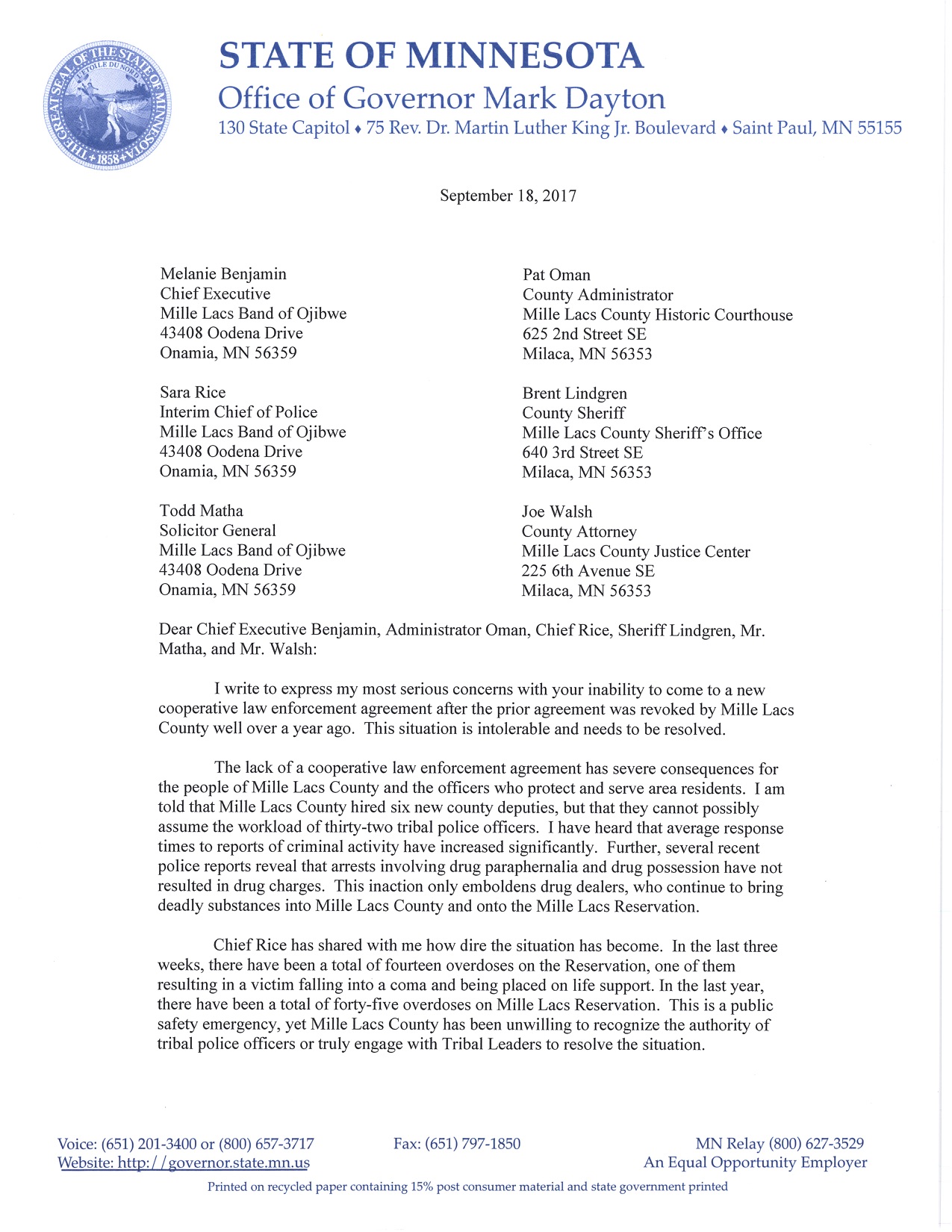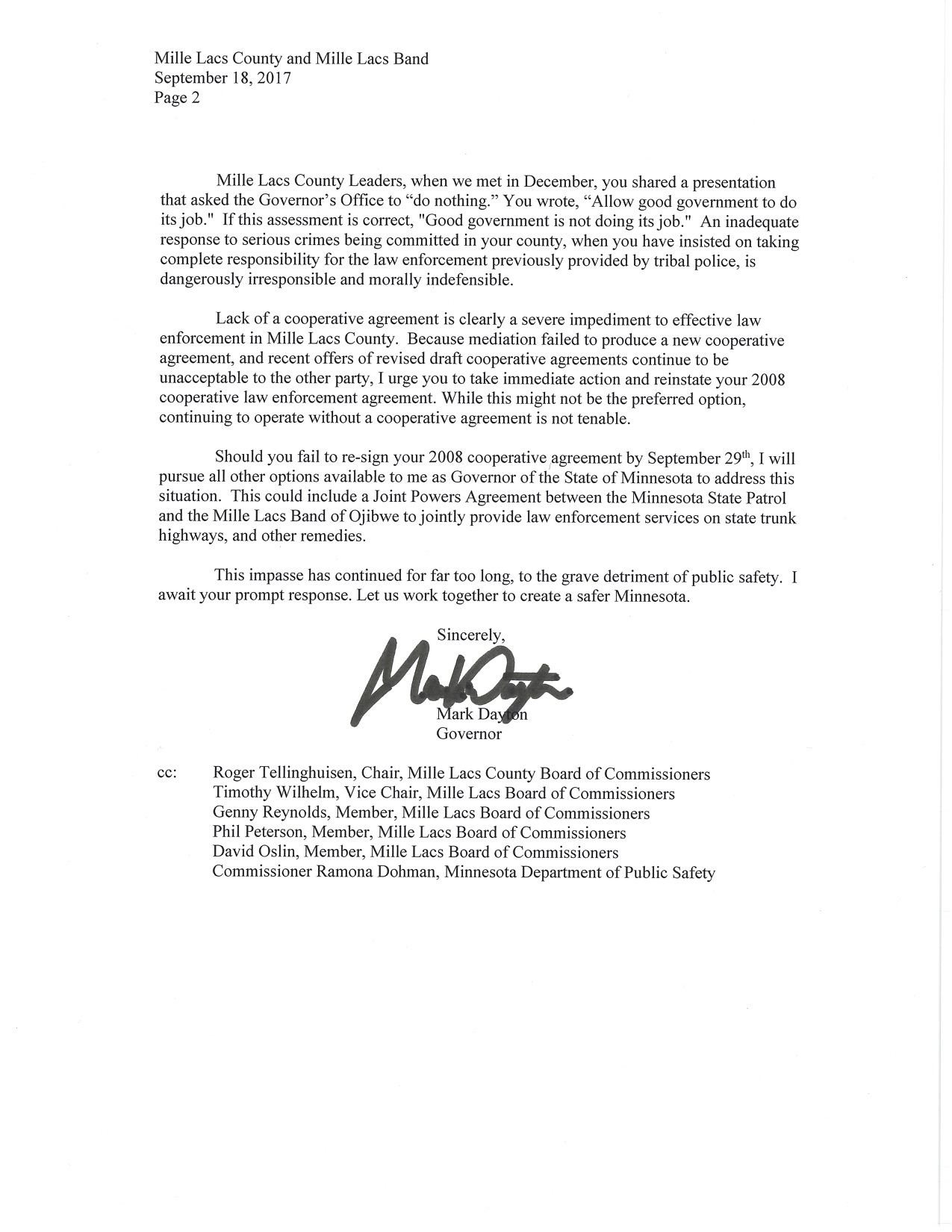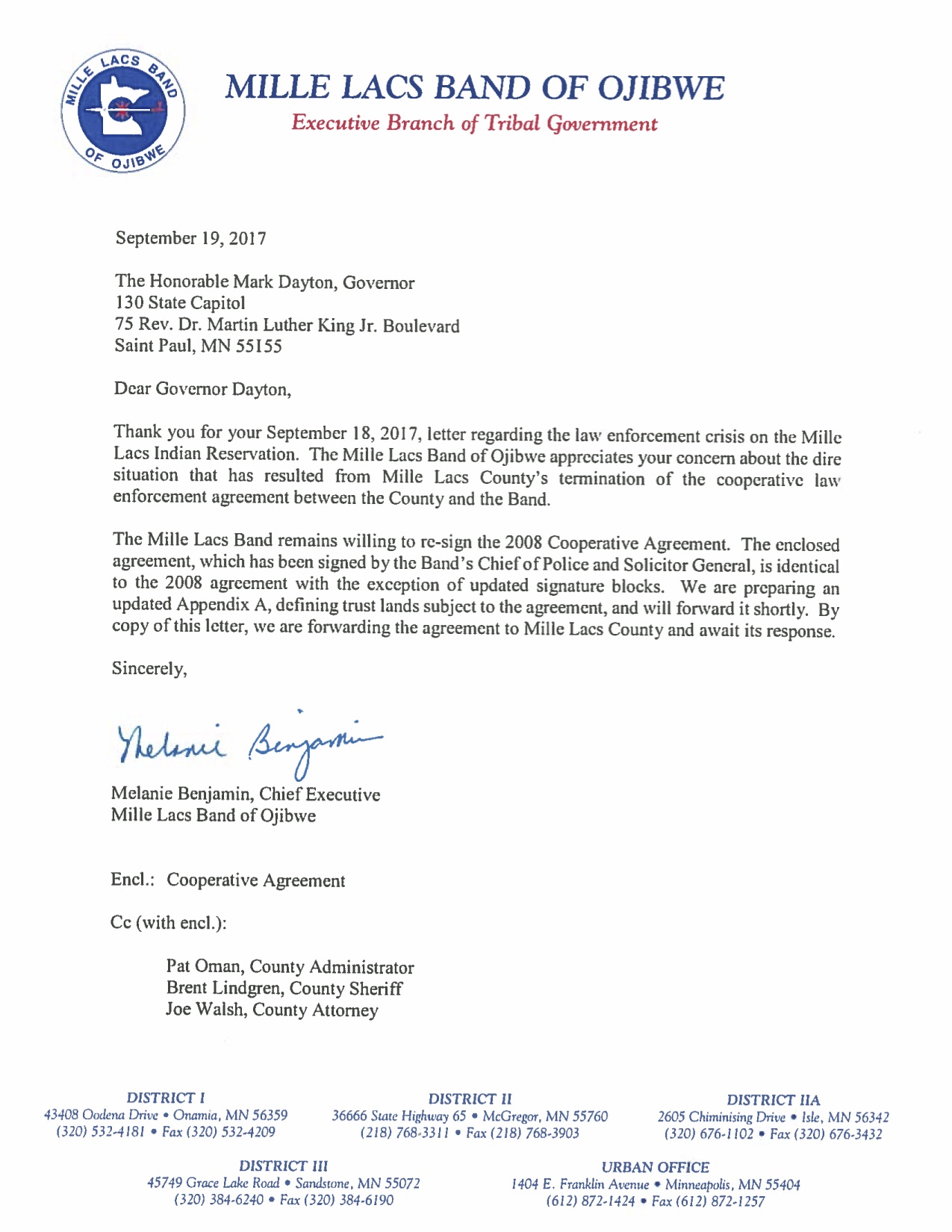Tribal government officials are hopeful that a strongly worded letter from Minnesota Governor Mark Dayton may help end an impasse over law enforcement that has tied the hands of tribal police.
The absence of a law enforcement agreement with Mille Lacs County has made it more difficult for the Tribal Police department to fight the drug problem on the reservation.
In his letter (printed below), Gov. Dayton called the county’s refusal to reach an agreement “dangerously irresponsible and morally indefensible” and urged the County to approve the 2008 agreement, which had functioned well for seven years.
Chief Executive Melanie Benjamin said, “We are grateful to Governor Dayton for taking a stand and defending the right of Mille Lacs Band members to adequate police protection. Still, this is not yet ‘mission accomplished.’ Yesterday, the Band Assembly and I approved a new agreement with Mille Lacs County that is identical to the 2008 agreement, as the Governor requested. It has the signatures required from the Band, and is now in the hands of Mille Lacs County officials. We await news of whether the County intends to sign this agreement prior to the Governor’s September 29 deadline, or whether it intends to relinquish its law enforcement responsibility to the State of Minnesota or possibly even the federal government. A special county board meeting is scheduled for September 26, so perhaps a decision will be made then.”
See below for copies of Governor Dayton's letter and the Chief Executive's reply.
Background
Mille Lacs County rescinded the agreement in June of 2016, citing several reasons.
– The Band’s attempt to modify Minnesota Statute, sec- tion 626.90, which establishes the authority of the Tribal Police Department to enforce state law.
– The Band’s ability to self-refer cases to the U.S. Attorney’s Office under the Tribal Law and Order Act.
– The Band’s participation in an Intertribal Violent Offenders Task Force Joint Powers Agreement under its “inherent tribal authority,” which the County says violates state law.
– The Band’s alleged “exercise of law enforcement authority outside of its jurisdiction” and “failure to cooperate and coordinate with the Mille Lacs County Sheriff’s Office, which has jurisdictional authority throughout all of Mille Lacs County” according to Public Law 280.
The Band has argued that none of these reasons has any merit, but attempts at negotiation and mediation have proven unsuccessful.
The law enforcement agreement was required by Minnesota Statute, section 626.90, as a condition for the Band to appoint peace officers under state law. It was passed in 1991 by the State Legislature as an alternative to retroceding State criminal jurisdiction within the reservation to the United States. The statute applies throughout the Band’s trust lands and the entire 61,000-acre Mille Lacs Reservation as established by the Treaty of 1855.
Because Minnesota is a Public Law 280 state, the state has criminal jurisdiction on reservations, with the exception of Red Lake and Bois Forte.
The agreement functioned well until 2007, when the Band pulled out of the agreement because the county was demand- ing to see all Tribal Police reports — not just those involving enforcement of state law. The Band said its officers could enforce Band law throughout the 61,000 acres, but the County said it could not.
A new agreement was signed giving the county attorney responsibility for prosecution of any person arrested by Band officers under section 626.90, but conceding that tribal police may act independently of section 626.90, and that in those cases, no report to the county attorney is required.


